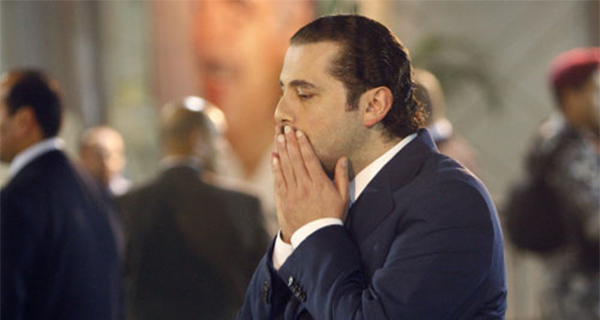Of those, Lebanon is hosting more than a million Syrians, roughly a quarter of its current population of four million
"This issue has reached a breaking point for us in Lebanon.. We want the international community to hear us and understand that Lebanon is facing a crisis," Hariri told foreign media in Beirut.
He was speaking ahead of an international conference on the post-conflict future of Syria that the European Union and United Nations are to host in Brussels on April 5.
The prime minister said he would appeal at the conference for international investment to improve infrastructure, including schools, roads, the environment and security in Lebanon.
He would propose the international community "commits... 10,000 to 12,000 (US) dollars per refugee (in Lebanon) over five to seven years".
Hariri told reporters he also fears that the refugee crisis could implode on the social level because of "huge tensions" between Lebanese and Syrians in most host communities.
"I fear civil unrest," he said.
The influx of Syrian refugees in Lebanon has stretched the country's economic resources, the billionaire premier said.
In the education system, classrooms were overcrowded with the number of students more than doubling in six years to accommodate Syrian pupils.
Unlike Palestinian refugees who live in camps managed by the United Nations, Syrian refugees in Lebanon live in informal camps.
"Some say we should have refugee camps in Lebanon, I say Lebanon has become a big refugee camp," Hariri said.
Lebanon, whose infrastructure was devastated during a 15-year war that ended in 1990, is struggling with endemic corruption and a public debt that represents 140 percent of its GDP.
---------------------------------------------------------------------------------------------
"This issue has reached a breaking point for us in Lebanon.. We want the international community to hear us and understand that Lebanon is facing a crisis," Hariri told foreign media in Beirut.
He was speaking ahead of an international conference on the post-conflict future of Syria that the European Union and United Nations are to host in Brussels on April 5.
The prime minister said he would appeal at the conference for international investment to improve infrastructure, including schools, roads, the environment and security in Lebanon.
He would propose the international community "commits... 10,000 to 12,000 (US) dollars per refugee (in Lebanon) over five to seven years".
Hariri told reporters he also fears that the refugee crisis could implode on the social level because of "huge tensions" between Lebanese and Syrians in most host communities.
"I fear civil unrest," he said.
The influx of Syrian refugees in Lebanon has stretched the country's economic resources, the billionaire premier said.
In the education system, classrooms were overcrowded with the number of students more than doubling in six years to accommodate Syrian pupils.
Unlike Palestinian refugees who live in camps managed by the United Nations, Syrian refugees in Lebanon live in informal camps.
"Some say we should have refugee camps in Lebanon, I say Lebanon has become a big refugee camp," Hariri said.
Lebanon, whose infrastructure was devastated during a 15-year war that ended in 1990, is struggling with endemic corruption and a public debt that represents 140 percent of its GDP.
---------------------------------------------------------------------------------------------









 Home
Home Politics
Politics











